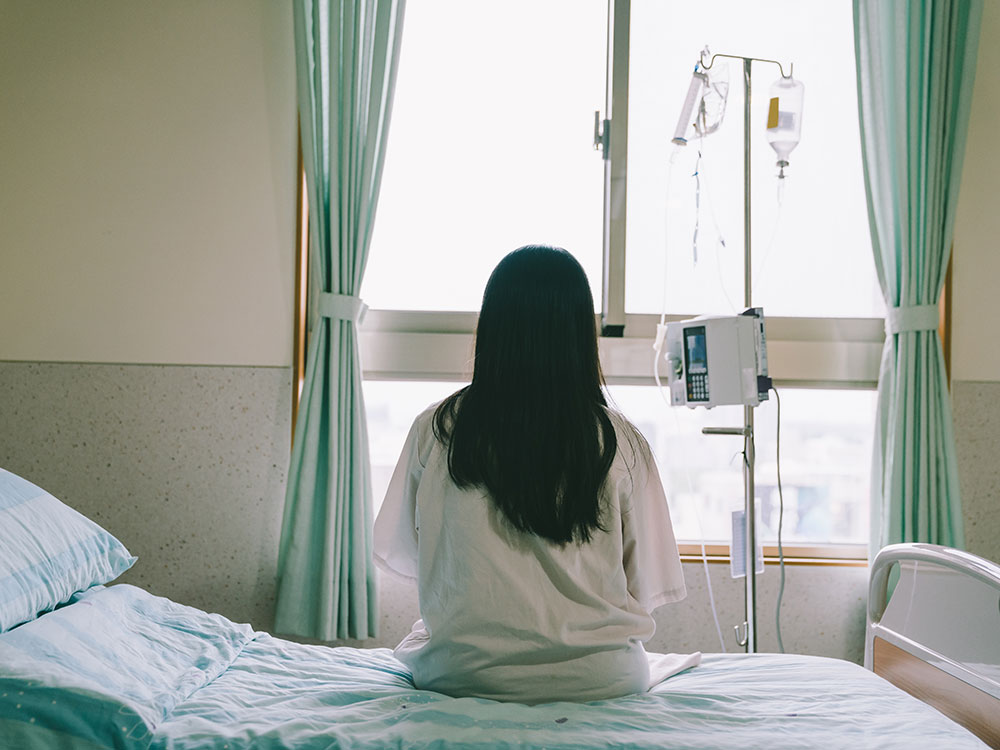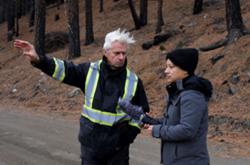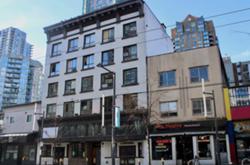News that the Supreme Court of the United States may overturn its landmark abortion decisions and clear a path for state legislatures to ban and criminalize abortion has brought renewed attention to the need for increased access to reproductive health care in British Columbia.
In 1973, Roe v. Wade established a constitutional right to an abortion, which the court ruled was protected under the 14th amendment’s right to privacy. Most of Roe was upheld in the subsequent 1992 decision in Planned Parenthood v. Casey.
In the interim years, many states including Texas have
And at least 13 states have “trigger” laws in place that would automatically ban all first and second trimester abortions if Roe is overturned. There has been a flurry of anti-abortion legislation even in the days since the news of the court’s intention broke, with state legislators trusting the Supreme Court to uphold increasingly restrictive abortion laws.
A leaked draft opinion from Justice Samuel Alito Jr., obtained by Politico, suggests a majority of the court’s nine justices have decided to overturn Roe in a pending case.
On Tuesday, B.C. Finance Minister Selina Robinson said any clawback of abortion access in the province would be “over my dead body.” That same day, the federal minister of families, Karina Gould, said American people will be able to get abortions in Canada.
But doctors and advocates in B.C. say the province still lacks many services and supports to make universal access to abortion and reproductive health care a reality.
And Canada has its own violations of reproductive freedom and racism to grapple with, such as the historical and ongoing forced sterilization of Indigenous and Black women.
“What we’ve seen in the United States has made us all sit up in our seats,” said Angela Marie MacDougall, executive director for the non-profit Battered Women's Support Services.
“But we need to understand that our access to abortion care is still stratified along gender, race and class lines in B.C.”
A 1988 Supreme Court of Canada decision, R v. Morgentaler, struck down an existing federal abortion ban and decriminalized abortion. There is no constitutional right to an abortion, as Roe established in the United States.
Attempts by some federal and provincial governments to limit abortion rights have been unsuccessful. Abortion is currently treated like any other medical procedure, decided between the patient and their health-care provider.
However, access to abortion varies greatly depending someone’s geographic location, financial means, race and immigration status.
In B.C., all five surgical abortion sites, which provide about one third of abortions, are located in the south of the province: one in Victoria, three in Vancouver and one in Kelowna. This means access for people in northern, rural and remote areas is particularly difficult.
“B.C. has some of the most liberal abortion provisions in Canada,” said Dr. Ruth Habte, a gynecological resident physician in Vancouver. “But there is still quite the disparity in access.”
In B.C., the abortion pill is available at no cost for people less than nine or ten weeks along. A doctor needs to prescribe it, which they can do virtually, and then the patient can pick it up at any pharmacy.
Virtual options became much more available during the pandemic, with the aim of making medical abortions easier to access, said Dr. Heather Smith. But, she added, many people may not know they are pregnant until after ten weeks.
Issues of stigma and shame around abortion also persist, particularly in small communities where a patient knows their doctor might not be willing to prescribe the pill.
Smith, based in Prince George, is the only family doctor between Williams Lake to the south, Dawson Creek to the north, the Pacific coast to the west and the Albertan border to the east who can perform surgical abortions up to 14 weeks. After that time, an obstetrician-gynaecologist is required to perform the procedure.
Anyone past 16 weeks in the North needs to travel south to Vancouver or Victoria for care. Evidence shows the later someone receives an abortion, the more likely it was a wanted pregnancy that needed to be terminated for their own health.
That puts intense financial and emotional strain on people already navigating a stigmatized process, Smith said. There is some support for travel costs available for Indigenous people with federal status or those who receive employment or disability government assistance, but not for most.
Poor, Indigenous, racialized people and single parents have the hardest time finding the money, taking time off work and arranging child care for a surgical abortion, which can see people spending three days in hospital if they are closer to term.
“Who watches your kids if you’re a single mom with no family nearby?” asked Smith.
These barriers are magnified for migrants and people with precarious or undocumented immigration status, said Karina Villada, a community connector at the non-profit Watari Counselling and Support Services in Vancouver. “It’s like, are they paying for the abortion, or paying the rent, or paying for the groceries?” she said.
Language barriers make even finding and booking appointments difficult, and MSP coverage doesn't begin for documented people until 90 days after they arrive in B.C. The waiting period, which disproportionately harms migrants, means many people pay out of pocket or wait to terminate until they are further along.
Villada has driven as far as Chilliwack to bring people to their appointments in Vancouver. Many come from places where abortion is criminalized, magnifying the stigma and shame they may feel in their decision. “They feel alone, and they feel invisible," Villada said.
A majority of people who get abortions already have children, and pregnancy is a risk factor for people experiencing gender-based or intimate partner violence, MacDougall added.
Habte, Smith and MacDougall all want to see the province fulfil its promise to make all forms of prescription contraception free under PharmaCare. The current NDP government campaigned on the promise in 2020, but it hasn’t been in either of its last budgets.
“I see the downstream effects of people not having access to contraception every day when I go to work,” said Habte, noting the distress unwanted pregnancies can cause.
When asked by The Tyee on Wednesday, Health Minister Adrian Dix said the province would make good on its promise but did not say when.
“We’re committed to it and we’re going to do it,” he said.
Smith also noted that addressing the growing family doctor shortage will ensure more people have timely access to reproductive health care with a physician they trust and who is trained to offer care like she does.
Habte encouraged concerned British Columbians to channel their frustration and fear into advocacy to their MLAs and other elected officials for better contraception and abortion access here in B.C. “There are tangible things we can do,” she said.
Abortion and contraception are significant aspects of reproductive rights, MacDougall said, but they need to be looked at in a “broader” framework of reproductive justice that includes anti-racism and decolonial practices.
Much of what is known about reproductive health is built on experiments that exploited and maimed enslaved Black women, she added. Black women have long been at the forefront of reproductive justice advocacy.
“The core of reproductive justice is really a deeper understanding of the human rights to control our sexuality, our gender, our work, and our reproduction,” said MacDougall.
“And it can only be achieved when all women and girls have complete economic, social and political power and resources to make healthy decisions about our bodies, our families, our communities, in all areas of our lives.” ![]()
Read more: Health, Rights + Justice, Gender + Sexuality

















Tyee Commenting Guidelines
Comments that violate guidelines risk being deleted, and violations may result in a temporary or permanent user ban. Maintain the spirit of good conversation to stay in the discussion.
*Please note The Tyee is not a forum for spreading misinformation about COVID-19, denying its existence or minimizing its risk to public health.
Do:
Do not: